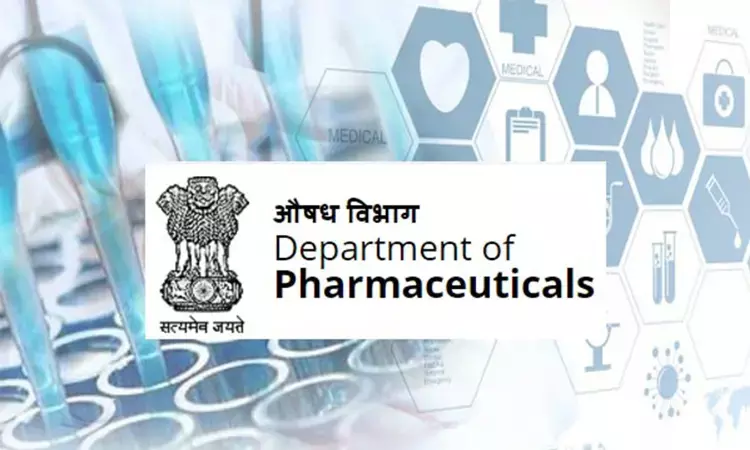- Home
- Medical news & Guidelines
- Anesthesiology
- Cardiology and CTVS
- Critical Care
- Dentistry
- Dermatology
- Diabetes and Endocrinology
- ENT
- Gastroenterology
- Medicine
- Nephrology
- Neurology
- Obstretics-Gynaecology
- Oncology
- Ophthalmology
- Orthopaedics
- Pediatrics-Neonatology
- Psychiatry
- Pulmonology
- Radiology
- Surgery
- Urology
- Laboratory Medicine
- Diet
- Nursing
- Paramedical
- Physiotherapy
- Health news
- Fact Check
- Bone Health Fact Check
- Brain Health Fact Check
- Cancer Related Fact Check
- Child Care Fact Check
- Dental and oral health fact check
- Diabetes and metabolic health fact check
- Diet and Nutrition Fact Check
- Eye and ENT Care Fact Check
- Fitness fact check
- Gut health fact check
- Heart health fact check
- Kidney health fact check
- Medical education fact check
- Men's health fact check
- Respiratory fact check
- Skin and hair care fact check
- Vaccine and Immunization fact check
- Women's health fact check
- AYUSH
- State News
- Andaman and Nicobar Islands
- Andhra Pradesh
- Arunachal Pradesh
- Assam
- Bihar
- Chandigarh
- Chattisgarh
- Dadra and Nagar Haveli
- Daman and Diu
- Delhi
- Goa
- Gujarat
- Haryana
- Himachal Pradesh
- Jammu & Kashmir
- Jharkhand
- Karnataka
- Kerala
- Ladakh
- Lakshadweep
- Madhya Pradesh
- Maharashtra
- Manipur
- Meghalaya
- Mizoram
- Nagaland
- Odisha
- Puducherry
- Punjab
- Rajasthan
- Sikkim
- Tamil Nadu
- Telangana
- Tripura
- Uttar Pradesh
- Uttrakhand
- West Bengal
- Medical Education
- Industry
DoP invites third round of applications for leftover slots under PLI Scheme

New Delhi: In order to promote domestic manufacturing of critical key starting materials (KSMs), drug intermediates (DI), and active pharmaceutical ingredients (APIs) , the Department of Pharmaceuticals (DoP) has issued a notice inviting applications from eligible companies to set up facilities under the production linked incentive (PLI) scheme for the third time for the leftover slots.
The new notice calls for a maximum of 14 applicants to develop key fermentation-based KSMs and DIs, as well as fermentation-based niche KSMs, DIs, or APIs, and four applicants to develop key chemical synthesis-based KSMs or DIs.
This includes slots to fill the shortfall in minimum annual production capacity of 1,600 MT of erythromycin thiocynate (TIOC) [maximum of two applicants to be chosen] and 1000 MT of 7-ACA [maximum of one applicant] under the Key Fermentation-based KSMs or DIs.
As per the notice, the scheme intends to boost domestic manufacturing of identified KSMs, Drug Intermediates, and APIs by attracting large investments in the sector and thereby reducing India's import dependence in critical APIs.
In the past, the industry's response has not met expectations, as fermentation-based bulk drug manufacturing requires more assurances and support from the government than what has been offered, including cheaper imports from China. The plans were to approve applications for a total outlay of Rs. 6,940 crore, for the period of ten years from 2020-21, in two rounds it could only gather committed investment to the tune of around Rs. 4,500 crore.
The Department of Public Health has issued guidelines for the PLI scheme for these drugs, which will be implemented in the country on October 29, 2020, and applications received in two rounds have already been evaluated and selected.
The government received 215 applications for the 36 products spread across the four target segments for the initial round, of which 42 applications were approved, with a total committed investment of Rs. 4,347.26 crore and an expected employment generation of around 8,792 people. Because a few slots for specific products remained unfilled, the second round of applications was invited, with the deadline for submission set for August 31, 2021, and a total of 24 applications were received. On November 25, the empowered committee chose eight companies to establish plants with a committed investment of approximately Rs. 151.12 crore and employment of approximately 1,951 people. Commercial production of these plants is expected to begin on April 1, 2023.
The total number of applications approved across both rounds is 50, with a committed investment of Rs. 4,498.38 crore and the creation of approximately 10,743 jobs.
As per the industry experts, the investment in fermentation-based products is significantly higher than in chemical synthesis, and only a few dozen top Indian companies are capable of manufacturing fermentation products.
Doctor of Pharmacy
Dr. Divya Colin, a Doctor of Pharmacy Graduate with extensive experience in clinical and hospital settings and confidently equipped with diagnostic and therapeutic skills. She also has spread out exposure to Oncology Departments in Mysore Medical College and Research Institute as Oncology Pharmacist. Currently she is building a career in clinical research and clinical data management. She has been a part of Medical Dialogue since January 2022.


